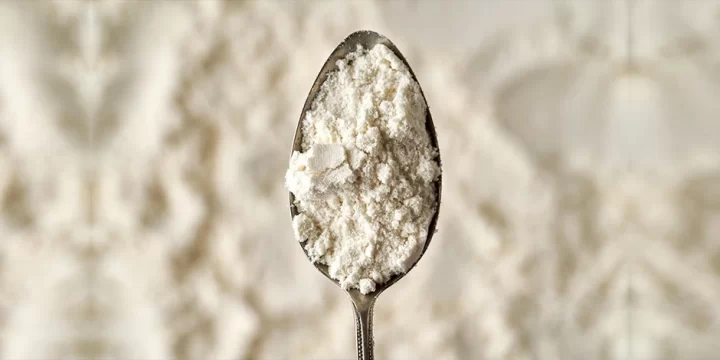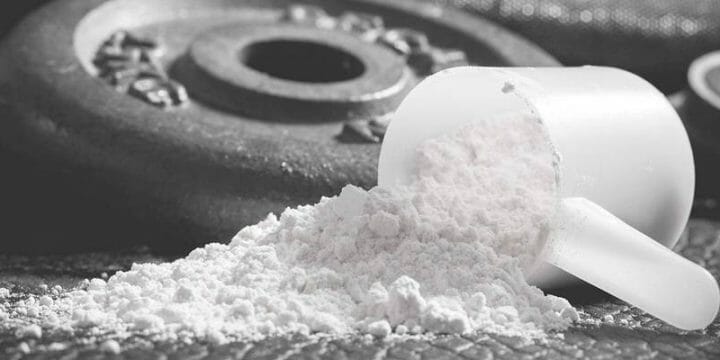Recently when working out, a fitness coach friend of mine approached me with concerns about whey protein and its impact on heart health.
As a medical doctor, I assured him that there's nothing to worry about, especially when whey protein is taken in the recommended dosage.
But to reassure him, I combined my knowledge, did additional research, and prepared this report about whey protein and cardiovascular health.
This is what you need to know.
Quick Summary
- Whey protein is not bad for the heart when taken in moderation, but instead has plenty of health benefits.
- Taking whey protein in moderation can lower blood pressure, increase blood flow, and lower LDL cholesterol levels.
- Excessive protein consumption can be bad for your cardiovascular health.
- After years of use, I'm convinced that whey protein, when taken responsibly, is a heart-friendly addition to any fitness regimen.
Is Whey Protein Bad For Your Heart?

No, whey protein isn't bad for your heart if you don't overdo it. It actually offers more health perks than downsides.
I've seen benefits like muscle growth, recovery, and better immunity from using whey protein. It's also helped my patients manage weight, thanks to its filling nature.
But, too much whey protein can harm cardiovascular health. Let's dive into studies that show both the good and bad of high protein diets.
Whey Protein May Clog Your Arteries
A 2020 study on mice published in Nature Metabolism suggests that a high-protein diet might cause more arterial plaque [1]. While the research wasn’t done using whey protein per se, it’s still relevant:
“A couple of scoops of protein powder in a milkshake or a smoothie adds something like 40 grams (g) of [dietary] protein — almost equivalent to the daily recommended intake.”
- Dr. Babak Razani, Associate Professor of Medicine, Washington University School of Medicine in St. Louis
However, note that this only happens in high intake consumption of protein.
Whey Protein May Increase Blood Sugar
In another recent study (2022) done by Havard Health, it was revealed that protein powders that contain a lot of added sugar can lead to increased blood sugar [2].
However, in my opinion, this side effect is easily preventable. Simply choose a protein powder with little added sugar.
Benefits of Whey Protein for Cardiovascular Health

A little amino acid is good for your heart, but too much isn't. Whey protein's branched amino acids aren't just great for muscle recovery and growth, they also help your heart by repairing and building muscle tissue and promoting new cell growth.
This points to whey protein being heart-friendly, as it's rich in amino acids. From my own experience as a physician, adding whey protein boosted my energy and workout endurance.
Lower Blood Pressure

As a doctor, I've seen how high blood pressure increases heart disease risk. Turns out, whey protein might help lower blood pressure, especially in higher doses.
My patients have found it useful for managing hypertension and boosting heart health. Science backs this up, too.
A study in the International Dairy Journal found that 28g of whey protein daily can reduce high blood pressure [3].
So, if you want to lower your blood pressure, you’ll probably need to increase your daily dosage of protein. According to a Cambridge University report, milk protein is equally effective in lowering high blood pressure [4].
Lower LDL Cholesterol
High cholesterol—and especially LDL cholesterol—increases the risk of cardiovascular disease and strokes which can be concerning for people with a family history of high blood pressure and other heart problems.
However, based on the experiences of my patients, whey protein has proven to be an effective means of reducing cholesterol levels and promoting heart health.
This is backed by studies from Lipids in Health and Disease which found that whey protein reduces not only LDL cholesterol but also total cholesterol [5].
Increasing Blood Flow
An adequate blood flow is essential for cardiovascular health because blood carries oxygen and other nutrients your heart needs to function. So, when your blood flow works well, your heart works well, too.
Taking a whey protein supplement right before exercising can increase your blood flow. That way, all the good stuff that blood carries can get to your muscles and brain faster.
Stick To the Recommended Dosage
As I always tell my patients, stick to the recommended dosage to avoid accidentally damaging your heart health. This means you should consume 25-50g of whey protein a day, no more.
Check more of our articles about whey protein:
References:
- https://www.nature.com/articles/s42255-019-0162-4
- https://www.health.harvard.edu/staying-healthy/the-hidden-dangers-of-protein-powders
- http://www.sciencedirect.com/science/article/pii/S095869461000141X
- https://www.cambridge.org/core/journals/nutrition-research-reviews/article/impact-of-milk-proteins-and-peptides-on-blood-pressure-and-vascular-function-a-review-of-evidence-from-human-intervention-studies/46EB7421DA240099A736AC8362B68C23
- https://lipidworld.biomedcentral.com/articles/10.1186/s12944-020-01384-7
About The Author
You May Also Like






